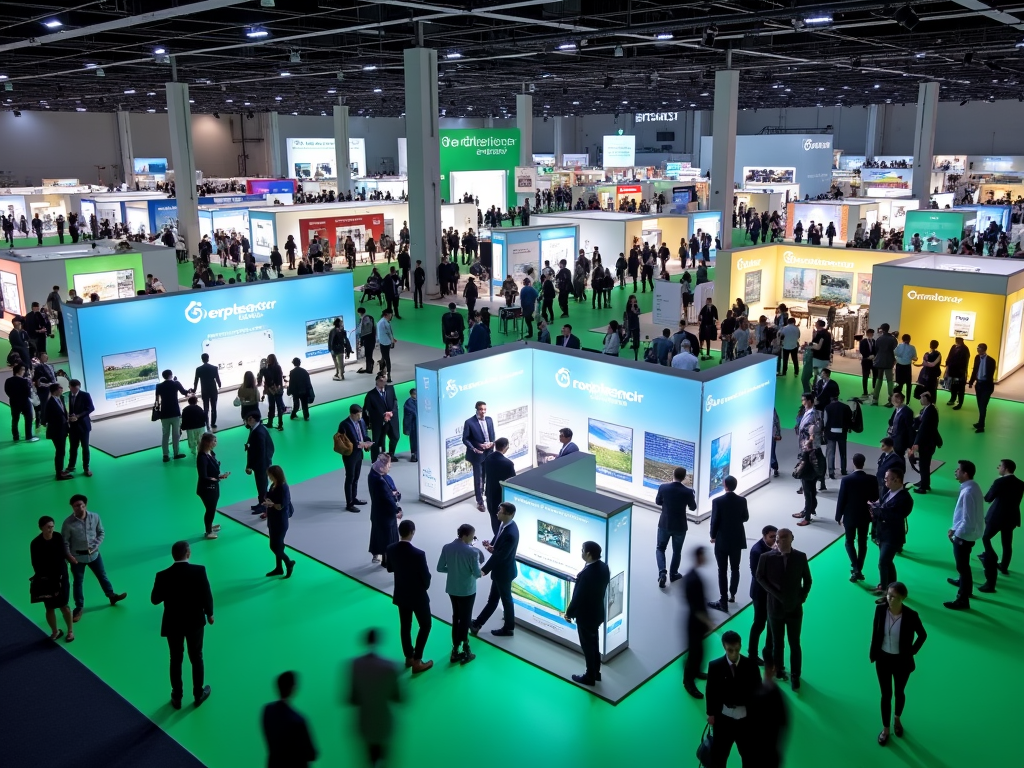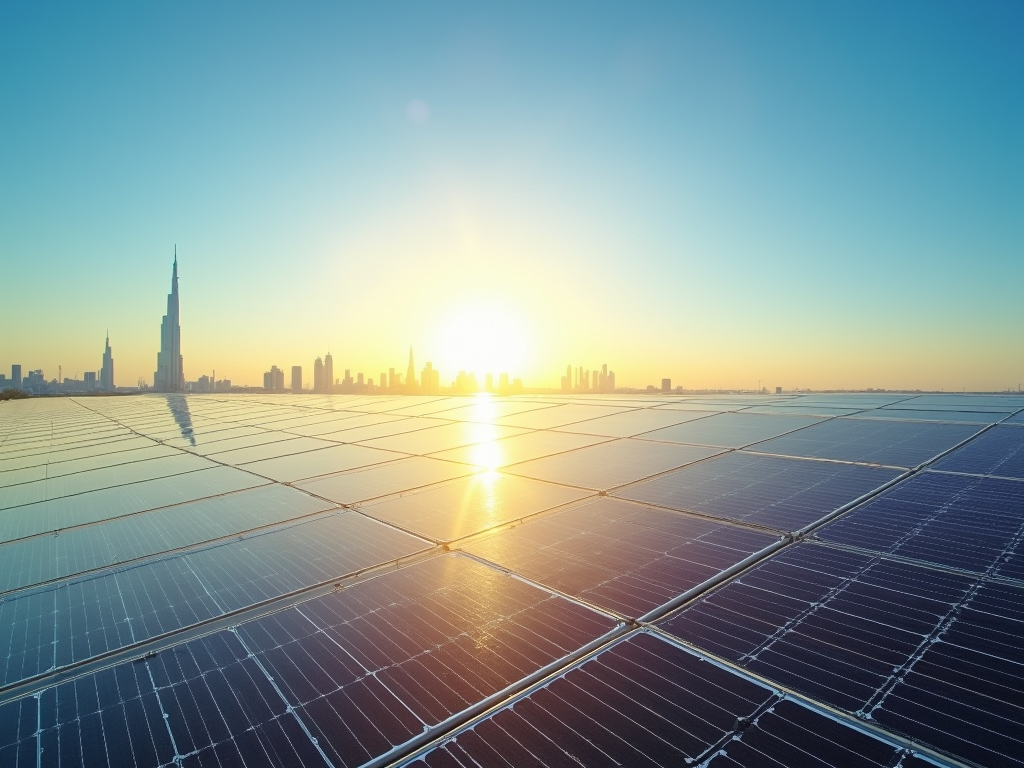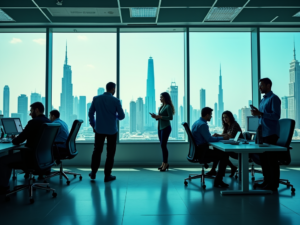Dubai has rapidly emerged as a pioneering force in the renewable energy sector, combining its resourceful investment and strategic vision to transform the energy landscape. As a part of the UAE’s commitment to environmental sustainability and economic diversification, this growth has generated considerable business potential within the region. The future of Dubai’s energy sector is not only pivotal for the city itself but serves as a model for other nations looking to harness alternative energy sources. Driven by impressive government initiatives and investments, the journey toward renewable energy is filled with opportunities for investors and businesses alike. With sun-drenched days and remarkable technological advancements, Dubai harnesses its natural resources to bolster a resilient economy.
Dubai’s Commitment to Renewable Energy

Dubai’s government has actively embraced renewable energy to contribute to global sustainability efforts by announcing ambitious targets. The overarching goal of the Dubai Clean Energy Strategy 2050 aims for 75% of the city’s energy needs to come from clean sources. This ambitious plan is underpinned by various projects and collaborations that emphasize innovation in renewable technologies. The key elements of Dubai’s commitment to renewable energy include:
- Investment in solar energy projects, including the Mohammed bin Rashid Al Maktoum Solar Park, one of the world’s largest.
- Pioneering wind energy initiatives and exploring geothermal and tidal energy potentials.
- Collaboration with private sector stakeholders to innovate in clean energy solutions.
- Establishing regulations and incentives to promote energy efficiency and green building practices.
- Aiming for a significant reduction in greenhouse gas emissions by prioritizing renewable sources.
These initiatives not only create an environmentally friendly energy portfolio but also emphasize Dubai’s leadership in the global renewable energy landscape.
Factors Contributing to the Growth of Renewable Energy

Several factors have collectively acted to accelerate the development of the renewable energy sector in Dubai. Firstly, the city benefits greatly from its geographical location, which provides an abundance of sunlight, making it ideal for solar power generation. Secondly, the UAE government has implemented a clear regulatory framework that encourages investment in renewable energy ventures. Moreover, the increasing global demand for sustainable energy sources puts pressure on businesses to adapt and innovate in this space. The local population’s growing awareness regarding environmental issues also plays a vital role in steering the demand towards greener energy options. Lastly, technological advancements have significantly reduced the costs associated with the development and deployment of renewable energy projects, making them more financially attractive for investors.
The expansion of Dubai’s renewable energy sector heralds a wealth of business opportunities that cater to various stakeholders, including entrepreneurs, investors, and multinational corporations. Notably, the burgeoning sector offers prospects in areas such as:
- Solar panel manufacturing and installation services.
- Energy storage systems, integral to maximizing renewable energy utility.
- Consulting services for sustainability and energy efficiency.
- Research and development in emerging renewable technologies.
- Financing renewable energy projects, benefiting from favorable government policies.
As Dubai positions itself as a global hub for clean energy, businesses that align their strategies with this transition stand to capitalize on the growing demand for sustainable solutions.
Challenges Facing the Renewable Energy Sector
Despite the promising growth trajectory, the renewable energy sector in Dubai faces several challenges that stakeholders must confront. Some of these challenges include:
- Integrating renewable energy sources into existing power grids without compromising reliability.
- The need for skilled labor to manage and maintain advanced renewable technologies.
- Market competition from conventional energy sources, particularly natural gas.
- Challenges related to financing large-scale renewable energy projects, especially during initial stages.
- Regulatory hurdles that need to be navigated to streamline project approvals and implementations.
Addressing these challenges will be crucial for sustaining growth and ensuring a seamless transition to a green energy future in Dubai.
Conclusion
Dubai’s renewable energy sector presents vast potential for growth and innovation, driven by strategic initiatives, a supportive regulatory environment, and abundant natural resources. While there are undeniable challenges to overcome, the collaborative efforts of government, private sector players, and the local community will play a vital role in navigating these obstacles. The continued focus on sustainability will not only enhance the city’s economy but also establish Dubai as a global leader in renewable energy.
Frequently Asked Questions
1. What is the Dubai Clean Energy Strategy 2050?
The Dubai Clean Energy Strategy 2050 aims to diversify energy sources and ensure that 75% of the city’s energy comes from renewable sources by the year 2050.
2. What major renewable projects are currently underway in Dubai?
The Mohammed bin Rashid Al Maktoum Solar Park is one of the most notable renewable energy projects, contributing significantly to Dubai’s solar power generation capacity.
3. How does Dubai plan to overcome challenges in renewable energy integration?
Dubai aims to address challenges by enhancing grid infrastructure, investing in advanced technology, and providing training to develop technical skills within the workforce.
4. What business opportunities exist in Dubai’s renewable energy sector?
Opportunities include solar panel manufacturing, energy storage solutions, consulting services, R&D, and financing renewable projects.
5. How is Dubai positioning itself in the global renewable energy market?
By investing heavily in renewable technologies, developing ambitious strategies, and fostering collaboration between private and public sectors, Dubai is establishing itself as a leader in the global clean energy market.


